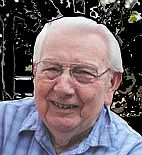 April 13, 2016 (Wednesday)
April 13, 2016 (Wednesday)
Let’s start this blog with a quiz. What’s the name of the Broadway stage actress who washed her hair during a stage performance?
Answer: Mary Martin, in the musical, “South Pacific.” Washing her hair was her own idea. It went along with a song in show, “I’m Gonna Wash That Man Right Outa My Hair.” At first, the shampoo took place as she was singing the song, but audiences were so impressed by what she was doing that they forgot to listen to the song. It was then changed so that the shampoo followed the main presentation of the song. She did it 8 times a week for 3 1/2 years (Math: 3 1/2 X 52 X 8=1456). I guess that’s what you call putting your heart into your work.
Mary Martin was born in Weatherford, Texas December 1, 1913 (and died in California at the age of 77). Her famous son was Larry Hagman, known to us as J.R. in the television series, “Dallas.” Weatherford put up a sign, “Welcome to Weatherford, Texas – Home of watermelons and Mary Martin.” Mary noted that she got second billing in her hometown.
Her favorite role was Peter Pan, which she played for several years on the New York stage. She and others commented that the role was consistent with her free-spirited life. In 1955, 65 million viewers watched a live telecast of her recreation of the hit musical.
You may be surprised to learn that she never uttered profanity, on or off the stage. The closest she ever came was saying that a certain person was a “son-of-a-bear.” She must have been very annoyed.
How refreshing to know that such a famous and successful person whose life was spent on the New York stage and sometimes on the Hollywood silver screen had a vocabulary that allowed her to express herself very well without the type of language so very prevalent today on stage and screen and in the private lives of entertainers. Makes us want to stand up and shout, “It can be done!”
One wonders today what could be done to bring civility, courtesy, politeness, good manners, and clean language back to our sometimes corrupted culture. Perhaps one by one those whose public lives have great influence could adopt a way of speaking that lifts the society to a higher level. The rest of us could do the same.
We know what is offensive, because obscenity is banned from the anchor desks of the evening news on television and radio. Most people don’t feel that they have been deprived by the absence of profanity under those conditions. We know which words we can do without and still make good sense in what we say. Why not give it a try in ordinary conversation?
